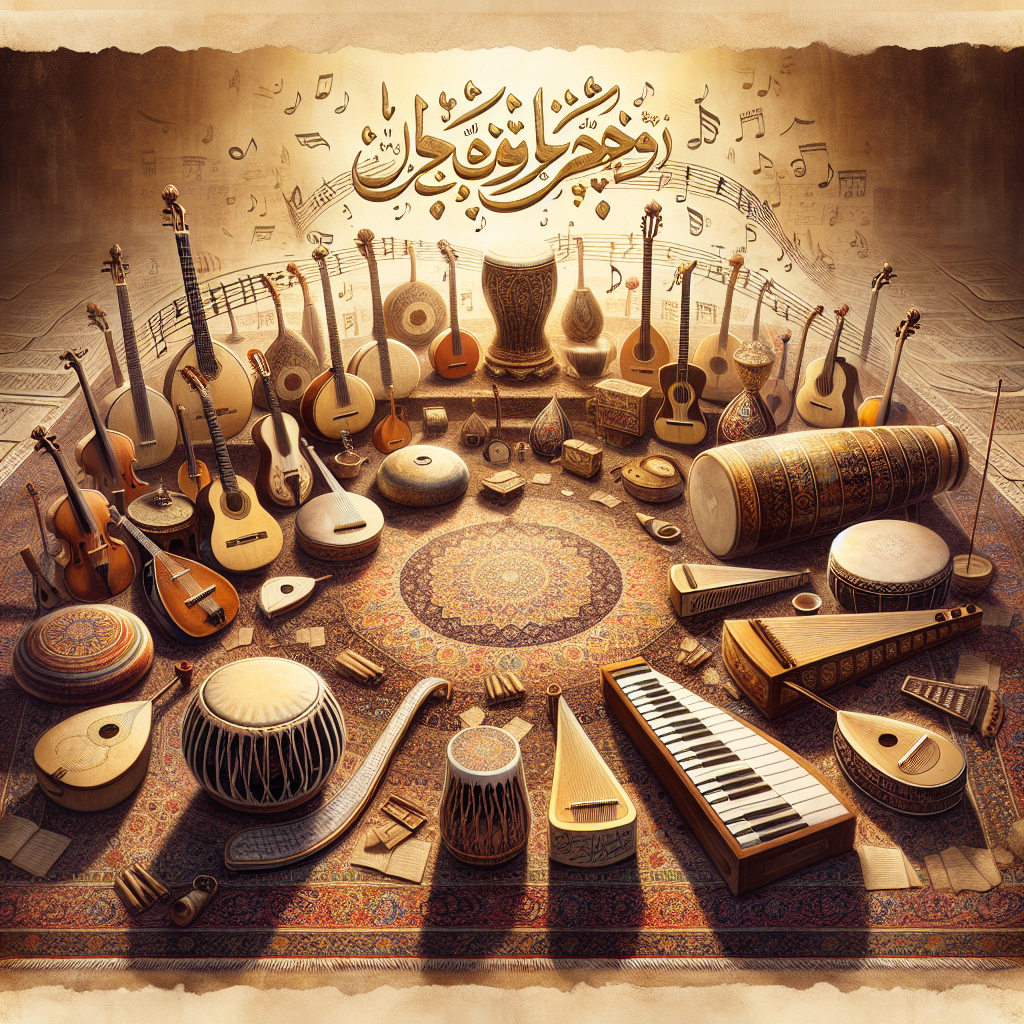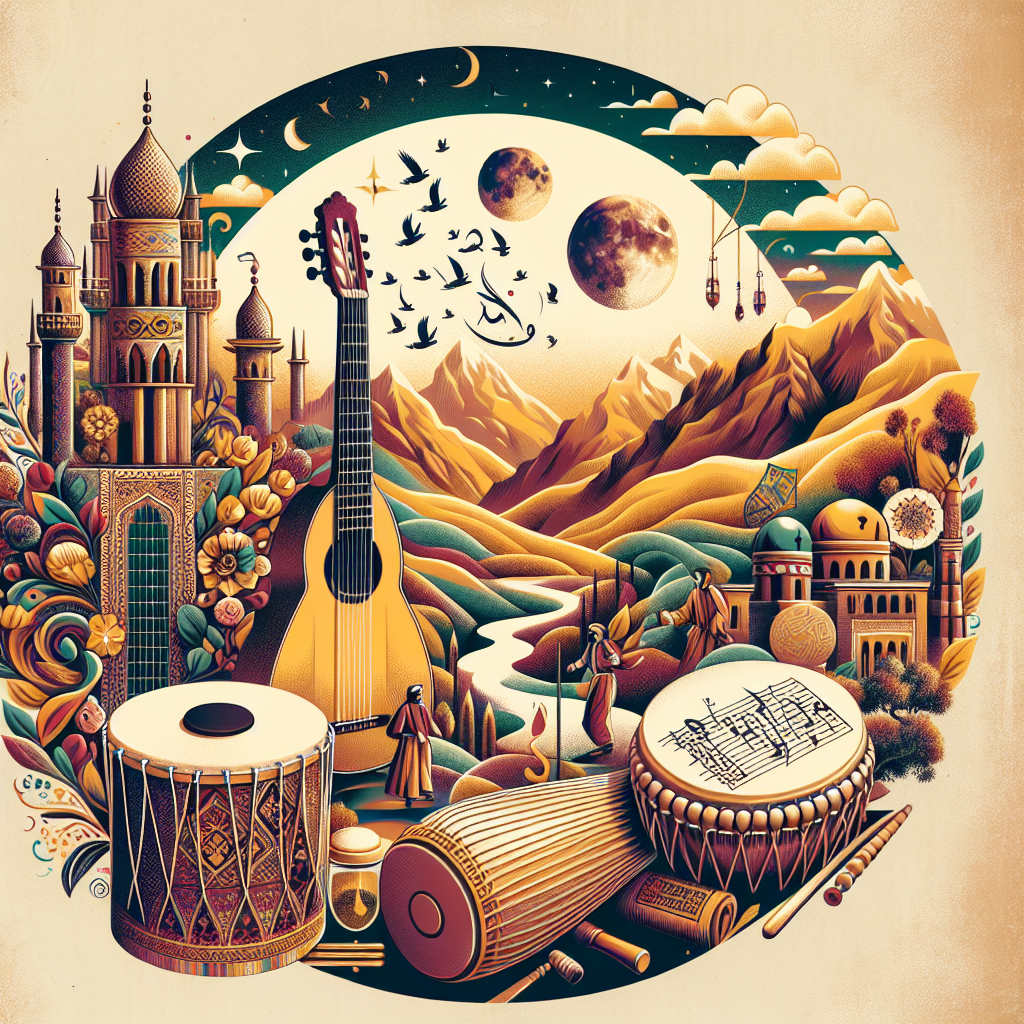Music is a universal language that binds the entire human race. Across the globe, diverse cultures have evolved unique musical traditions, each lending a remarkable color to the vast spectrum of global music. One such gem is the traditional Bakhtiari music of southwestern Iran, renowned for its intricate rhythms and captivating melodies.
Bakhtiari Music: An Overview
The Bakhtiari are a southwestern Persian nomadic tribe inhabiting the region of the Zagros Mountains. They are known for their rich musical traditions that have been passed down through generations. The music of the Bakhtiari, expressed through the melodies of the flute, drum, and Dohol, is inseparable from their daily lives, narrating tales of their time-honored traditions, migrations, and communities.
The Intricate Rhythms of Bakhtiari Music
The Bakhtiari music is notably characterized by its complex and intricate rhythm patterns. In the western musical notation terms, these rhythms commonly employ odd-metered time signatures like 5/8, 7/8, and 11/8, creating a unique and challenging rhythm fabric. This unconventional rhythm structure imbues the music with a certain dynamism and energy that is synonymous with the lively lifestyle of the Bakhtiari tribe.
The Dohol, a large cylindrical drum, is used to execute these complex rhythm patterns. Skilled Bakhtiari musicians display exceptional dexterity while playing the Dohol, producing syncopations and cross-rhythms that greatly enhance the music’s overall appeal.
Bakhtiari Melodies
The traditional Bakhtiari melodies often feature a range of minor and major intervals, offering rich melodic constructs. The Ney-anbān (a type of bagpipe) and the Sorna (an oboe-like instrument) are employed to produce these melodious tunes. These instruments generate mesmerizing sound patterns, heightening the auditory experience of the listener.
In addition to its rhythmic richness, Bakhtiari music also employs ornamentation extensively. These ornamentations, combined with a well-defined tonal structure, contribute to creating melodies of profound depth and beauty.
Significance and Influence
Bakhtiari music is not merely for entertainment; it is deeply embedded in the social fabric of the tribe and significantly influences their identity and culture. The music also plays a crucial role in various social events, such as weddings, funerals, and other festive occasions.
The depth and richness of Bakhtiari music have also extended its influence beyond Iran’s borders. Global artistes have showcased Bakhtiari music styles in concerts and recordings, contributing immensely to the spread of this traditional music form on a global scale.
Bakhtiari music, with its intricate rhythms and captivating melodies, offers a profound musical experience that transcends cultural barriers. It is a testament to the rich musical heritage of the Bakhtiari tribe and stands as an excellent example of how music can be an integral part of a community’s identity. With the rise in global recognition and appreciation, it is hoped that this traditional music form will continue to flourish and inspire artists worldwide.
- What is the Bakhtiari tribe?
The Bakhtiari tribe is a southwestern Persian nomadic tribe residing in the region of the Zagros Mountains.
- What characterizes Bakhtiari music?
Bakhtiari music is characterized by its unique rhythm structure, mostly employing odd-metered time signatures and complex rhythm patterns.
- What instruments are used in Bakhtiari music?
The Bakhtiari music primarily uses three instruments – the Ney-anbān (a type of bagpipe), the Dohol (a large drum), and the Sorna (an oboe-like instrument).
- How has Bakhtiari music influenced music around the world?
Due to its richness and depth, Bakhtiari music has found its way into the global music scene, with several artists incorporating its unique style in their performances and recordings.
- Does the Bakhtiari tribe still exist today?
Yes, the Bakhtiari tribe still exists today and is known for maintaining their traditional lifestyle, including their rich musical traditions.




